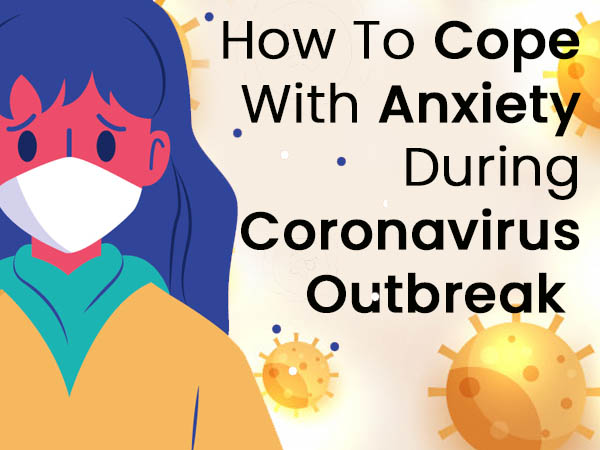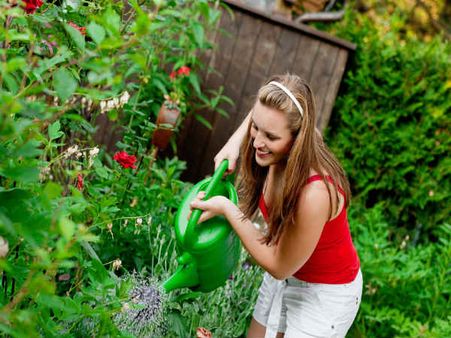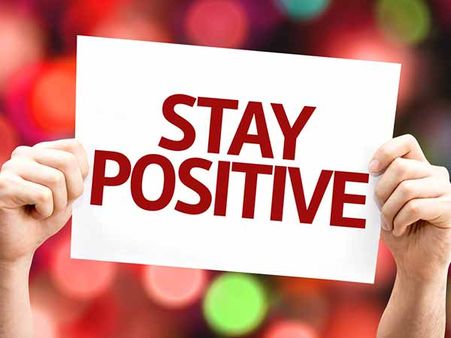Just In
- 1 hr ago

- 10 hrs ago

- 12 hrs ago

- 12 hrs ago

Don't Miss
- Movies
 Alia Bhatt Turns Heads In Sharara Kurta Set From Seema Gujral For Heeramandi Screening, Know The Price
Alia Bhatt Turns Heads In Sharara Kurta Set From Seema Gujral For Heeramandi Screening, Know The Price - News
 Irish Travelers Cautioned Amid Canary Islands Protest Against Tourism
Irish Travelers Cautioned Amid Canary Islands Protest Against Tourism - Sports
 DC vs GT IPL 2024: Why Shubman Gill Held Back Spinner R Sai Kishore Till 19th over?
DC vs GT IPL 2024: Why Shubman Gill Held Back Spinner R Sai Kishore Till 19th over? - Travel
 Escape to Kalimpong, Gangtok, and Darjeeling with IRCTC's Tour Package; Check Itinerary
Escape to Kalimpong, Gangtok, and Darjeeling with IRCTC's Tour Package; Check Itinerary - Finance
 DCB Bank Q4 Results: PAT Grew 9% To Rs 156 Cr, NII Jumps 4.5%; Dividend Declared
DCB Bank Q4 Results: PAT Grew 9% To Rs 156 Cr, NII Jumps 4.5%; Dividend Declared - Technology
 OPPO Find X7 Ultra Camera Deep-Dive: Pushing the Boundaries of Photography on a Smartphone
OPPO Find X7 Ultra Camera Deep-Dive: Pushing the Boundaries of Photography on a Smartphone - Education
 MP Board Class 10th, 12th Results 2024, Know Alternative Ways to Check Your Result
MP Board Class 10th, 12th Results 2024, Know Alternative Ways to Check Your Result - Automobiles
 Aston Martin Vantage Launched In India At Rs 3.99 Crore
Aston Martin Vantage Launched In India At Rs 3.99 Crore
11 Ways To Cope With Anxiety During Coronavirus Outbreak
Due to the coronavirus (COVID) outbreak, millions of people are working from home; malls, schools and other public places are closed to prevent the risk of contracting this new virus. During a pandemic, feelings of fear, anxiety and sadness tend to crop up because you never know how widespread or deadly this disease is going to end up being.
During this crisis, having increased feelings of anxiety and sadness is very normal, especially for people with existing mental health problems. Health experts say that people may feel overwhelmed, fearful, sad, angry and helpless and also may find difficulty in concentrating. Some people may have physical symptoms such as an upset stomach or an increased heart rate.

Quarantine due to coronavirus or other such similar outbreaks has a negative impact on mental health, according to a study. People who had been quarantined had a high prevalence of psychological symptoms, such as depression, emotional disturbance, low mood, irritability, stress, insomnia and post-traumatic stress symptoms [1].

Coronavirus can cause people to stress out and worry a lot more. Here are some ways to cope with anxiety during the coronavirus outbreak.

1. Exercise
Physical activity can help ease your stress and calm down your mind [2]. If you are indoors, try doing simple exercises like water bottle weights, plank exercises and dancing. If you are not under quarantine, go for a walk or run outside while avoiding close contact with people.

2. Get involved in your favourite hobby
If gardening, cooking or baking is your favourite hobby, start getting involved in it as it will drive away all your stress and worries [3]. You can list out the fruits and vegetables to plant in your garden or if you are into cooking or baking, cook your favourite dish or dessert.

3. Read books
Reading books can help overcome anxiety and fear. Just by opening a book, you are allowing your brain to go into a literary world that will help distract you from your stress, fear and anxiety. Read light-hearted books as it will help relax your body and mind.


4. Take a relaxing bath
A relaxing bath with salts, essential oils and candles will release your stress, anxiety and depression because the pleasant aromas can aid in relaxing your body [4]. Soak yourself in a bubble bath or take a hot shower.

5. Mindfulness meditation
Practicing mindfulness meditation will make you live in the present moment by making you aware of where you are and what you are, and not get overly overwhelmed by what's going on around you. It will teach you how to respond to stress and help reduce anxiety and depression [5].

6. Stick to a routine
If you are working from home during this crisis, your usual commute and schedule will be out of track. Follow a new routine that will let you explore a lot of things even while you are working from home and this will help you to stay on track.


7. Limit your social media consumption
Too much incorrect information is getting circulated on social media platforms. Reading that information and not knowing what's right or wrong will increase your anxiety and fear. Limit your time on social media and read less number of articles on coronavirus outbreak.
Note: To stay well informed, go through reliable, reputable online sources such as Centers for Disease Control and Prevention (CDC) and World Health Organization (WHO).

8. Develop your own action plan
Avoid listening to people who will give unsolicited advice and taking advice from the wrong people will do you more harm than good. Don't take suggestions unless they are recommended by the CDC or WHO or other government sources.

9. Think what you are grateful for
Take a diary, journal or notebook and write down the things that you are grateful for. Write down what's most important to you and what you truly appreciate in your life, it can be anything. This will reduce your anxiety and stress levels and help you feel calmer.

10. Practice self-care
During this stressful time, taking good care of yourself is of utmost importance. Eat a balanced diet, get plenty of sleep and get involved in your leisure activities. This will improve your physical and psychological well-being [6].

11. Seek professional help
If
you
feel
that
you
are
stressing
out
or
fearing
more
than
usual
due
to
the
coronavirus
outbreak,
seek
professional
help
immediately.
A
psychologist
will
help
you
manage
your
fears
while
also
motivating
you
to
do
better
and
take
good
decisions.
During
this
time
of
crisis,
the
World
Health
Organization
(WHO)
has
come
up
with
some
tips
to
support
mental
health
and
psychological
well-being.
- Avoid watching, reading or listening to news that may make you feel distressed or anxious.
- Seek accurate information to take preventive steps for yourself and for your loved ones.
- Seek information updates at specific times, once or twice during the day.
To
Conclude...
As quick as pandemics begin they disappear as well. Managing your anxiety can be difficult during this outbreak; just following the above tips will help manage your anxiety during these times of uncertainty.
-
 healthCOVID Surge In India: Do You Need A COVID-19 Booster Shot?
healthCOVID Surge In India: Do You Need A COVID-19 Booster Shot? -
 disorders cureCommon COVID Symptoms In Fully Vaccinated Individuals: What You Should Know
disorders cureCommon COVID Symptoms In Fully Vaccinated Individuals: What You Should Know -
 wellnessMild COVID Linked To Life-Threatening Blood Clots, Increased Risk Of Cardiovascular Disease; Study
wellnessMild COVID Linked To Life-Threatening Blood Clots, Increased Risk Of Cardiovascular Disease; Study -
 wellnessCOVID-19 Variants In India: New COVID Variant May Pose Threat To Elderly People
wellnessCOVID-19 Variants In India: New COVID Variant May Pose Threat To Elderly People -
 basicsCovid-19 Linked To Early Onset Of Periods: What You Need To Know
basicsCovid-19 Linked To Early Onset Of Periods: What You Need To Know -
 wellnessCOVID XBB Variants Of Omicron In India: What You Should Know
wellnessCOVID XBB Variants Of Omicron In India: What You Should Know -
 disorders cureNew Omicron Subvariant BQ.1 Detected In Maharashtra: What You Should Know
disorders cureNew Omicron Subvariant BQ.1 Detected In Maharashtra: What You Should Know -
 disorders cureOmicron BF.7 In India, Risk Of Fresh Wave During Diwali: What You Should Know
disorders cureOmicron BF.7 In India, Risk Of Fresh Wave During Diwali: What You Should Know -
 wellnessCoronavirus Residues Might Be Causing Long COVID: New Study
wellnessCoronavirus Residues Might Be Causing Long COVID: New Study -
 wellnessCentury-Old TB Vaccine Could Be Effective Against Covid-19 And Other Infections: New Study
wellnessCentury-Old TB Vaccine Could Be Effective Against Covid-19 And Other Infections: New Study -
 disorders cureCovid-19 Patients At Risk Of Neurological & Psychiatric Conditions Two Years After The Infection: New Study
disorders cureCovid-19 Patients At Risk Of Neurological & Psychiatric Conditions Two Years After The Infection: New Study -
 wellnessCOVID In Smokers: An Expert Explains
wellnessCOVID In Smokers: An Expert Explains


 Click it and Unblock the Notifications
Click it and Unblock the Notifications



